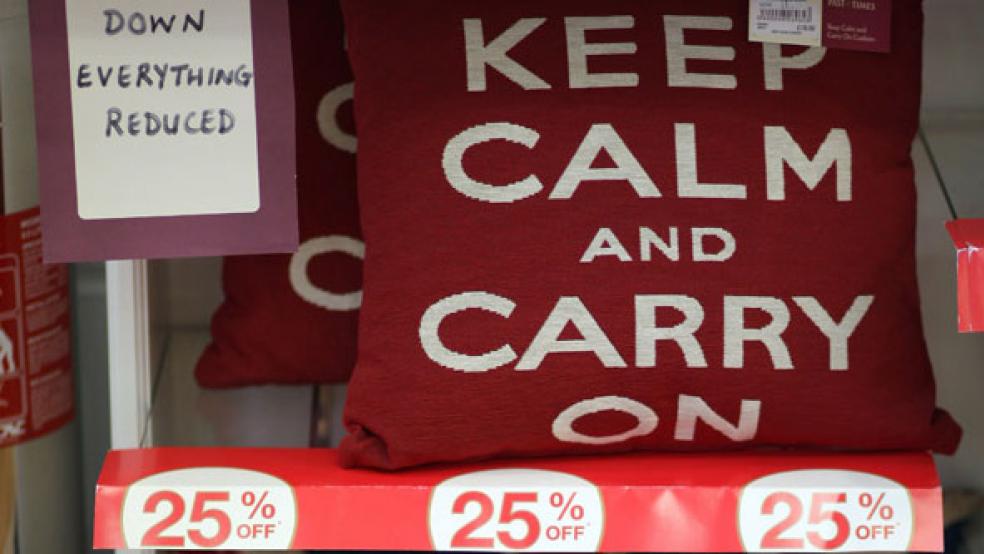Investors have had their nerves tested over the last few weeks as Wall Street careened from big losses to big gains and back again.
Alarmed by the volatile market, many pulled their money from mutual funds, with $26.1 billion flowing out of equity funds and $10.4 billion out of bond funds, according to tracking firm EPFR Global. “An imperfect storm of downgrades, rumors, lackluster macroeconomic data and the ongoing Eurozone debt crisis transformed a retreat by investors into something approaching a stampede during the week ending August 10,” according to an EPFR note. Money market funds, on the other hand, saw inflows of nearly $50 billion as investors sought to safely park their cash.
In hopes of helping their anxious clients sleep more easily—and perhaps also concerned about possible redemptions that could affect the ability to steer their funds—a number of money managers have penned letters sharing their perspectives on the market turmoil. Below, portions of notes from four respected money management firms.
Brian Rogers, chairman and chief investment officer of T. Rowe Price:
“While we're experiencing a perfect storm of political dysfunction, slowing economic growth, and a debt downgrade, the market backdrop is very different from that of 2008 when we were truly in the crosshairs of a global financial crisis. The sharp decline has been so sudden that I believe a good portion of the decline is behind us. Nonetheless, markets will remain volatile…. We also know from experience that emotional responses to financial downturns rarely produce good results. Now is the time for investors to remain focused on the fundamentals and to maintain a long-term perspective. As painful as market downturns are, the indiscriminate selling that accompanies a panic creates opportunities for investors who can see beyond the fear.”
“Uncertainty, in our opinion, is one of the most difficult factors for professional as well as individual investors to deal with, and it is dominating the markets currently. Uncertain markets are characterized by increased volatility and correlation between asset classes, as well as increasingly shorter time frames for investment decisions. None of this, in our opinion, will improve the probabilities of earning a satisfactory return over a reasonable period of time. Rather, we think that in most instances, these will improve the odds of the opposite outcome.… One relatively new factor contributing to this volatility (and we admit that we do not have a lot of empirical data to back it up) is the impact of algorithm-driven trading which, in the U.S. equity markets, is upwards of 60% of volume. It is largely driven by arithmetic-historical correlations volatility, and holding periods measured in minutes if not seconds.
In our view, it is ultimately the economics that win out, and in our case, the economics of the underlying businesses we own. It certainly has been the case historically, and in our opinion, profits and cash flow will remain the fundamental long-term drivers of equity valuations. The probabilities of objectively valuing the economics and sustainability of a business are far better than the alternative of predicting the movement of ‘markets’ over any given time period and we think the empirical evidence supports this view…. So while we don’t enjoy this type of environment – to say the least – we keep our focus on trying to buy a good business at a very attractive price.”
Jeremy Grantham, chief investment strategist at GMO
“So my advice for the last two months of the Presidential Third Year (typically the short seller’s nightmare) is to continue to keep your head down. And, more to the point, keep it down for the foreseeable future. Maybe you can pop up again for some risk taking in the next Year 3! Of course, everything changes if the market pulls an ’09 and gets down to fair value. And we’re 10% closer to fair value than when I originally sat down to write this….
At the close on August 8, a slightly cheap equity portfolio could be put together comprised of U.S. high quality, emerging markets, Japan, Italy, and European growth stocks. On our data, the imputed 7-year return of the package today would be about 6.5% real!* Quality stocks, especially in the U.S. but almost everywhere, continue to handsomely outperform. Regrettably, this means that they have declined very considerably less than the indices. In its asset allocation accounts, GMO is modestly underweight equities, partly because of the desperately unattractive yields on fixed income. We are now very modest buyers for the first time since mid 2009.”
Ron Muhlenkamp, manager of the Muhlenkamp fund
“The outlook for the next month or so isn’t good either. Europe has major problems and the parliaments are all on vacation. If this develops into a full-blown liquidity squeeze or banking crisis, it will get ugly. I expect European leaders will be unable to get ahead of the problem for at least six weeks. I think the problems in Europe will impact the decisions of businesses, consumers, and investors in the U.S., and make a recession more likely in the near term, not less. In the last week to 10 days, most of the CEOs we listen to during quarterly earnings calls are very cautious when they talk about the second half of the year; so we’re seeing businesses react already. We see a lot of good companies selling at prices we like, but if investors start selling without regard to price—either because they have to meet margin calls or because they are scared—value won’t matter for a while.”





